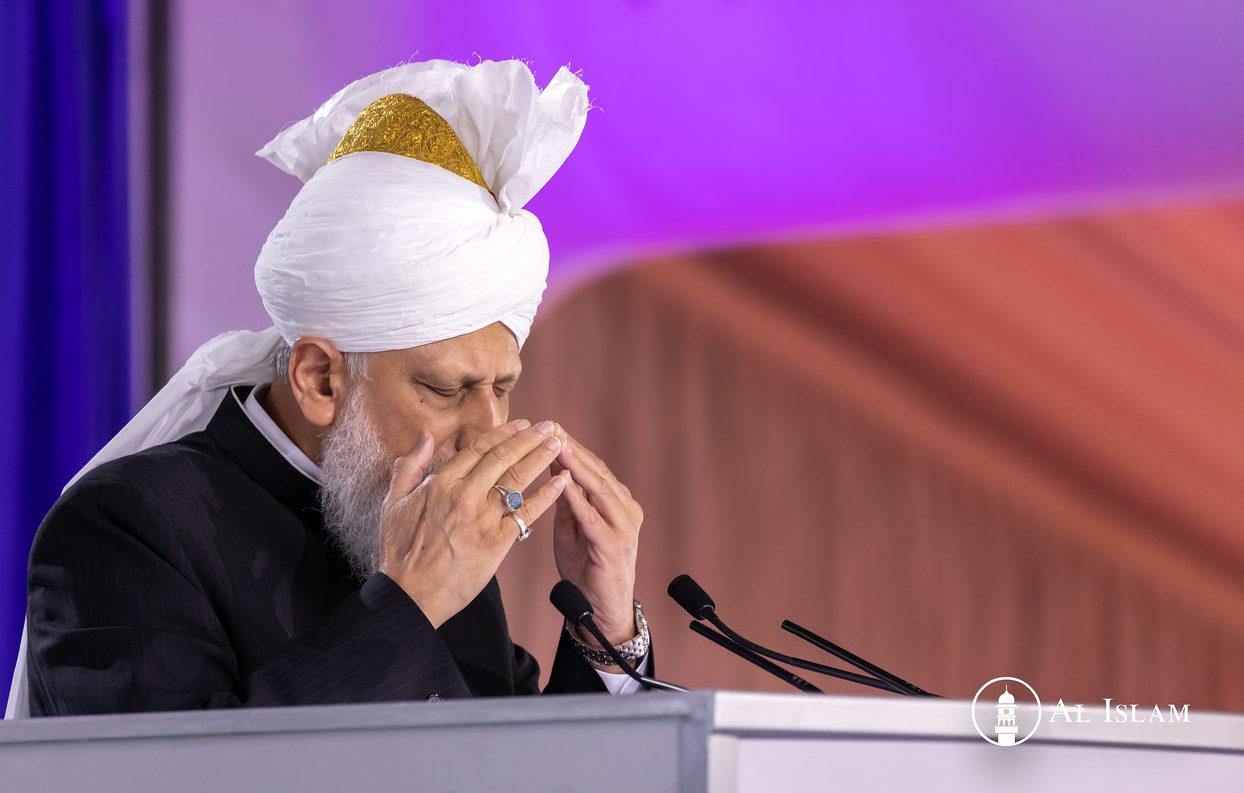APRIL 29, 2024
In today’s age, Islam is subjected to heavy criticisms, and its teachings and commandments are often misunderstood. Since most of these criticisms arise from the misinterpretation of the Quranic text, an accurate and true explanation of the scripture is called for. As such, this series aims to present the authentic interpretation of the Holy Quran as provided by the leaders of the Ahmadiyya Muslim Community, which we believe will do a great deal in dispelling the numerous misconceptions that have become associated with Islam.
In this issue, we present the commentary of the Quranic verse 2:36 from Tafsir-e-Kabir (The Grand Exegesis) by Hazrat Mirza Bashiruddin Mahmud Ahmadra. It is imperative to note that the subject matter discussed in the verse can only be fully understood when studied in the proper context, alongside the preceding and following verses, for which we encourage the readers to refer to the original exegesis.
This abridged translation is not an official rendering but is being published for the benefit of readers in view of the aforementioned objective. Light of Islam takes full responsibility for any errors in the translation and summary.
وَقُلْنَا يَا آدَمُ اسْكُنْ أَنْتَ وَزَوْجُكَ الْجَنَّةَ
And We said: ‘O Adam, dwell thou and thy wife in the garden.’
Holy Quran 2:36
Keyword Analysis
Jannah: ‘Jannah’ is derived from ‘janna’, meaning it veiled, concealed, or covered a thing. So ‘Jannah’ means any garden with trees that cover or conceal the ground, or an orchard with luxuriousness and denseness of verdure. Heaven has been named Jannah because of its similarity with earthly gardens, although they have many differences, or for the fact that the blessings of Heaven are hidden from the eyes of man.
Commentary
It is wrong to contend that Hazrat Adamas was made to dwell in that Paradise, which is prepared for the righteous in the Hereafter. As explained in the keyword analysis, the word ‘Jannah’ means garden and does not necessarily signify Heaven. In the present verse, it denotes a place on the earth that has been called so for being an abode of comfort and for its excellent system.
Adam’s Jannah was not the Heaven of the Hereafter
The word ‘Jannah’ occurring in this verse cannot be interpreted as referring to Paradise for several reasons. Firstly, it is evident from the Quranic verse, “I am about to place a Vicegerent in the earth”[1], that Adamas was made to dwell on the earth.
It would hence be illogical on the part of Allah to entrust Adamas with the governance of this world and then place him in Heaven. Evidently, each and every action of God carries purpose. If Adamas was taken to Heaven, who would have fulfilled the purpose of his vicegerency on earth?
Secondly, it has been clearly mentioned regarding the Heaven of the afterlife that no one who once enters it would be expelled from it. The Quran states:
“Fatigue shall not touch them there, nor shall they ever be ejected therefrom.”[2]
However, Adamas was made to quit from the place he lived. This starkly contradicts the description of Paradise mentioned above.
Thirdly, Satan has been mentioned to have entered the Jannah of Adamas, whereas the Quran explicitly states about Heaven:
“Therein is neither levity nor sin.”[3]
This implies that everyone in Paradise will be free from wrongdoing. Contrary to this, in the Jannah of Adamas, not only was Satan present, but he also prompted Adamas to act against the will of God.
Likewise, regarding the Paradise of the Hereafter, it has been stated that its dwellers would have all they desire[4] and would be free to go wherever they please.[5] However, Hazrat Adamas was forbidden from approaching the tree and was expelled from there for violating this command.
In short, the Quran provides an entirely different depiction of the Heaven of the afterlife compared to the description of the place where Adamas dwelt. This shows that the Jannah of Adamas was located on this very earth. Given his role as a vicegerent for the people of the earth, it was imperative for him to remain here until his death.
Where was the Jannah of Adamas situated?
We learn from the Bible that Adamas was made to live in a place near the Tigris and Euphrates rivers[6]. Since Prophet Noahas also belonged to this region and Prophet Abrahamas was born in Ur, which is also situated in Iraq, this region is likely to have been a home to ancient civilisations.
Recent excavations, initially led by Hall and later by Woolley, have revealed that the region of Ur was inhabited during ancient times[7]. These excavations have provided evidence of occupation in this region dating back to 3500 BC or even earlier, as later discoveries indicate[8].
In light of all this, it would not be far-fetched to infer that this region was the birthplace of Adamas, and as such, the starting point of human civilisation.
END NOTES
[1] Holy Quran 2:31
[2] Holy Quran 15:49
[3] Holy Quran 52:24
[4] Holy Quran 41:32
[5] Holy Quran 39:75
[6] Book of Genesis 2.14
[7] Beyond the Ubaid: Transformation and Integration in the Late Prehistoric Societies of the Middle East, edited by Robert A Carter & Graham Philip (2010), Oriental Institute of the University of Chicago, p. 2
[8] Ur, Leonard Woolley, retrieved from Encyclopedia Britannica












0 Comments